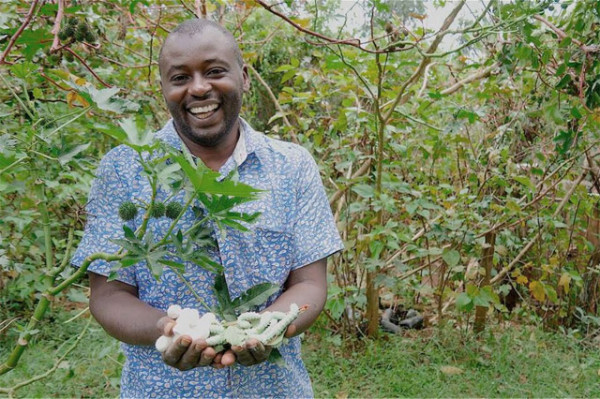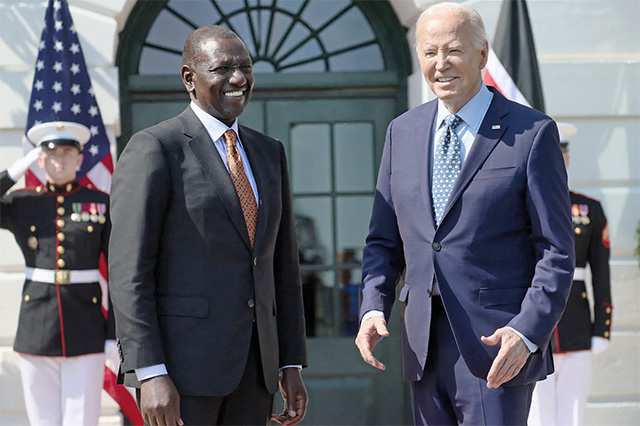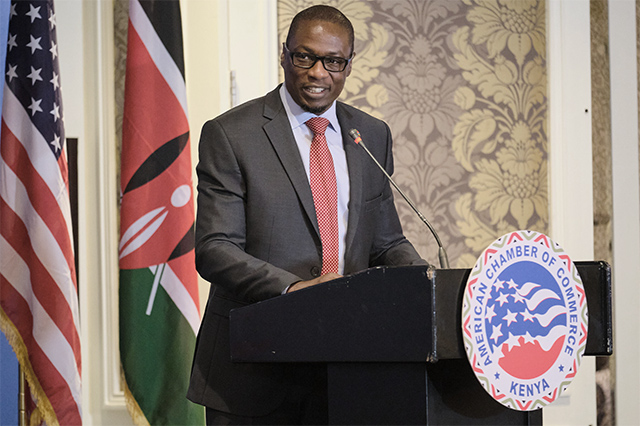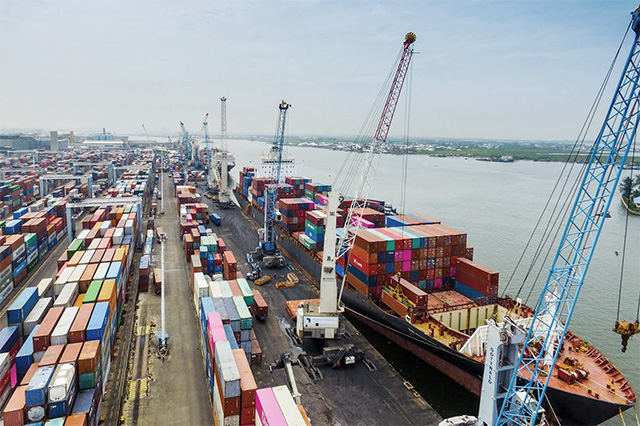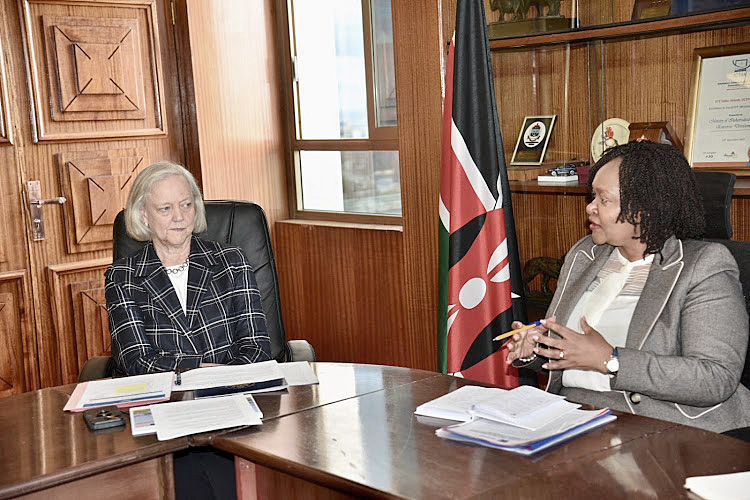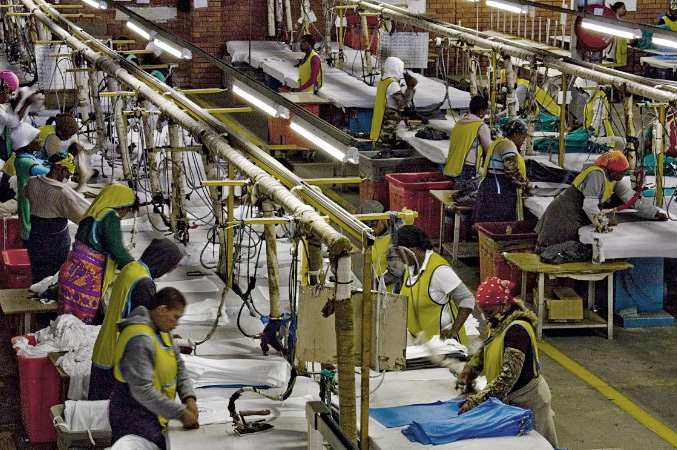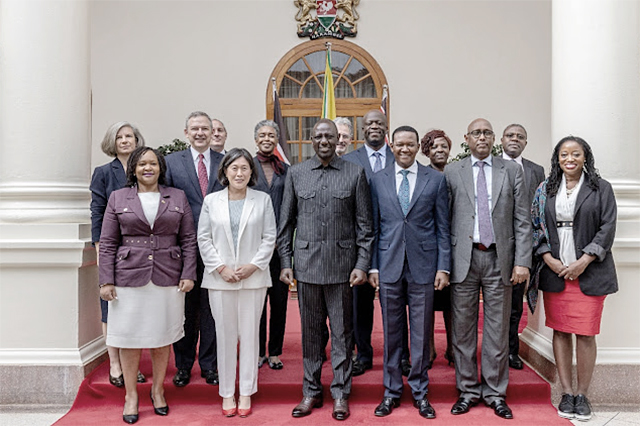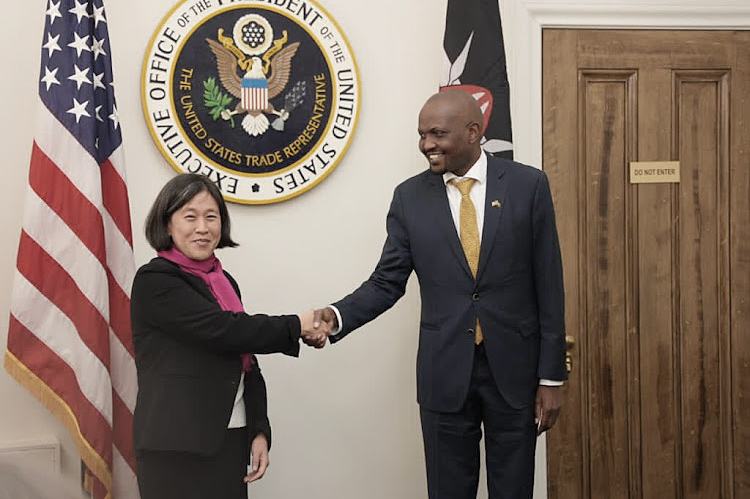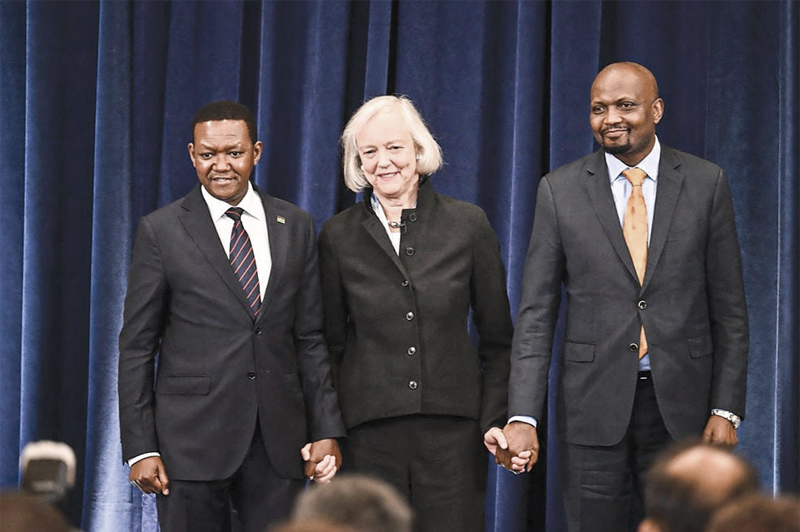Kenya: Farmers tapping into lucrative silk farming for export
Sericulture or silk farming is practised in many countries, with China and India dominating the global market, accounting for over 60 per cent of the yield.
An acre of land can produce silk worth Ksh1,800,000 annually and the product is considered to have a sustainable market in the European Union (EU), the African Growth and Opportunity Act (AGOA - United States) and Far East Markets.
Kenya has a favourable climate for silk farming, as it does well at temperatures between 23⁰-28⁰C. It also thrives in high humidity areas with constant green vegetation.
Silk is one of the most expensive materials in the textile industry around the world, mostly sort after by high-end designers.
Farmers in Makueni, Kenya have tapped onto this rare venture and turned to cultivation of silkworms to produce silk.
Tosheka Textiles, a local company founded by Lucy Muli, a silk farmer in Makueni is creating community-empowering, sustainable and globally competitive eco-friendly textiles, apparel and accessories in line with the government's goal to promote the local textile industry.
"The textile industry has introduced Eri silkworm farming to establish a year-round alternative sustainable farming for dry areas that is not dependent on rain," she states.
Silk farmers opine that it is perhaps the easiest farming ever seen, with great returns and insatiable demand.
Silkworm farming entails a set of careful procedures that farmers need to understand and follow in order to harvest the best quality. A simple mishap in the process may turn costly for a farmer and translate to compromised silk quality.
The total life cycle of a silk worm spans through 45-55 days, with 10-12 days of egg stage, 25-30 days of larvae stage, 2-3 days for cocoon spinning, 5-7 days as pupal duration, and 4-5 days in adult stage.
The silkworm rearing process begins with the laying of eggs by the female silk moth in a dark, well-aerated room.
Typically, 300-500 eggs are obtained from one female silk moth laid on a paper/cardboard sheet.
A feeding bed is prepared on a rearing tray by sprinkling chopped mulberry or castor leaves onto it and hatched larvae are transferred into this tray through a process known as brushing.
To maintain humidity, foam strips are soaked in water and placed on the tray.
Silkworm larvae have a good appetite but as they develop their appetite slowly diminishes until their active stage as the worms are fed three times per day, and feed vigorously until the final stage.
After reaching maturity, the larvae begin searching for hospitable places to begin pupation, a stage, where the body of the silkworm shrinks and becomes translucent.
Mature larvae wrap themselves in a cocoon by secreting saliva from the two salivary glands on their heads which then solidifies to become silk when it is integrated with air.
The harvesting of silk from these cocoons is the final stage of sericulture. First, the pupae inside the cocoon are killed by boiling the cocoon and exposing it to steam and dry heat in a process called stifling.
Farmers should then transfer them to specially woven mats with small rows as to allow them to attach and start spinning their cocoon where the farmer should avoid overcrowding of mats.
The silk filaments are removed from the dead cocoon through a process called reeling, where cocoons are placed in boiling water for about 15 minutes to enable the separation of individual filaments.
The filaments are twisted into a thread with the help of a series of guides and pulleys and the reeled silk is then re-boiled in order to improve its lustre.
One thread of silk contains around 50 silk filaments and over 900 meters of filament can be obtained from a single cocoon. Raw silk is then obtained from the silkworm and the sericulture process is deemed complete.
Muli indicates that silkworm fibre is the most convenient and eco-friendly fibre for the multi million shillings textile industry in Kenya and that silkworm farming is less labour intensive and environment friendly compared to cotton farming which is heavily dependant on rains, fertilizers and chemicals.
40,000 domesticated silkworms can be grown in a space of about 4 metres square, and produce between 30-40kg of silk, at Ksh1500-2500 per kg thus farmers can earn between Ksh45,000 and Ksh80,000 per rearing cycle, with assistance from the Kenya Agricultural and Livestock Research Organisation (KALRO).
4-5 annual rearing cycles are achievable as a farmer gains more experience.
The worm’s excrement is also considered a good organic fertilizer that can fetch a farmer extra income.
Silk farmers have urged both county and national governments to introduce extension services that will create awareness and enable easier reach to other farmers in the country.
Tap onto the series name in the chart below to activate / deactivate each of the data series.
Download Chapter 50 of the US Tariff Schedule to view the different tariff lines for silk products, and associated duty-free status here, or try the product eligibility tool here.


